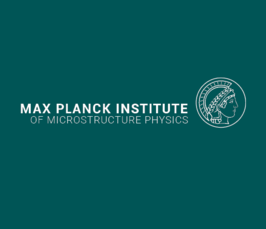Quantum Networks of Photons and Artificial Atoms: Large Datasets Improve Architectures
Seminar
- Datum: 17.06.2022
- Uhrzeit: 14:00
- Vortragender: Prof. Dirk R. Englund
- Ort: Max-Planck-Institut für Mikrostrukturphysik, Weinberg 2, 06120 Halle (Saale)
- Raum: MPI Lecture Hall

There’s been tremendous progress in theory and experiment of quantum networks as a means of distributing quantum information over long distances. This talk will focus on one approach, based on quantum memories encoded in spins and coupled to photons via color centers in diamond. From large datasets of such color centers -- silicon vacancy and tin-vacancy defects in particular -- it is clear that the inhomogeneous distribution of optical transitions can be reliably kept below ~ 10 GHz, and that within this distribution there is no significant correlation with spin coherence properties. This invites protocols tailored to take advantage of this spectral distribution for wavelength division multiplexed addressing. To this end, we will discuss a new scheme for optical entanglement distribution in quantum networks based on a near-deterministic entangled photon pair source. By combining heralded photonic Bell pair generation with spectral mode conversion to interface with quantum memories, the scheme eliminates switching losses due to multiplexing. We analyze this approach for the particularly challenging problem of long-baseline entanglement distribution via satellites and ground-based memories, where it unlocks additional advantages: (i) the substantially higher atmospheric transmission η of down-links vs. uplinks with realistic adaptive optics, and (ii) photon loss occurring before interaction with the quantum memory – i.e., Alice and Bob receiving rather than transmitting – reduces memory requirements by O(η).
Dirk Englund received his BS in Physics from Caltech in 2002. After a Fulbright fellowship at T.U. Eindhoven, he completed an MS in Electrical Engineering and a PhD in Applied Physics at Stanford University in 2008. After a postdoctoral fellowship at Harvard University, he joined Columbia University as Assistant Professor of E.E. and of Applied Physics. He joined the MIT EECS faculty in 2013. Major recognitions include the 2011 Presidential Early Career Award in Science and Engineering, the 2011 Sloan Fellowship in Physics, the OSA's 2017 Adolph Lomb Medal, the Bose Research Fellowship in 2018, and a Humboldt Research Fellowship in 2020.